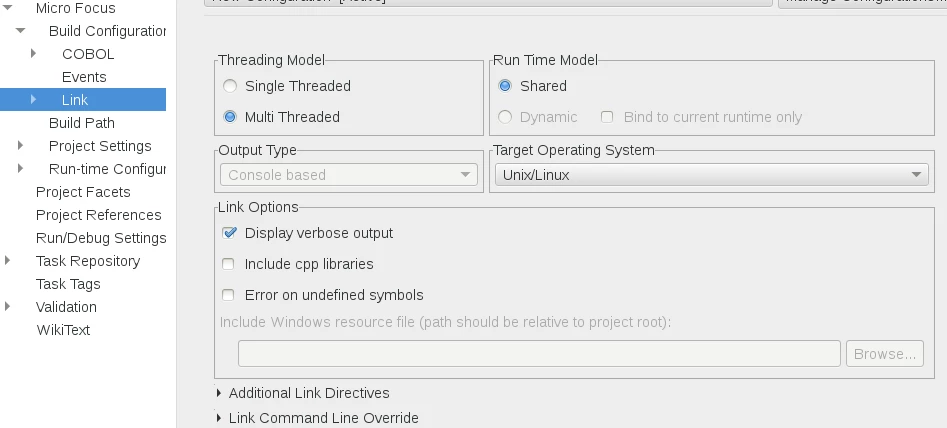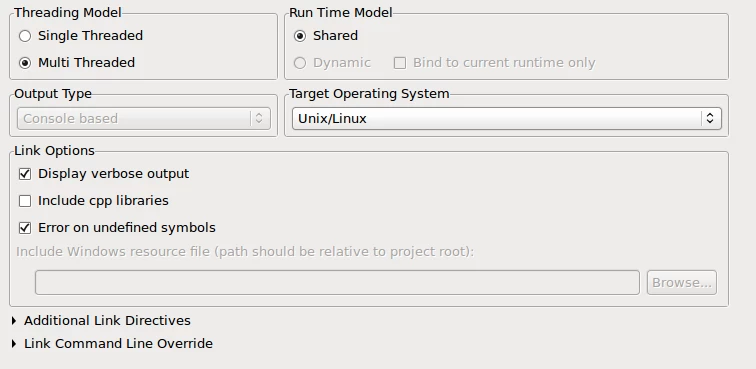I try to understand how Visual COBOL works in Eclipse GUI. I turn verbose mode

I saw this information in the build output windows:
[cobollink] Linking Hello...
[cobollink] cob32 -g -x -t -oHello Hello.o -U
[cobollink] Link complete with no errors
[cobollink]
I can understand purposes about these flags: -g, -t, -x from
But I really do not understand flag -U
The document says :
Dynamically Load Unresolved Reference (-U)
Causes any unresolved reference to be treated as a COBOL program to be dynamically loaded. Normally, such references would cause a fatal error at link time when creating a system executable, or cause a fatal error at run-time for callable shared objects.
But I did not see any difference to use -U or without -U in the final executable file.
Is there anyway to turn off -U flag in Visual COBOL?
Really appreciated.
#COBOLflags





